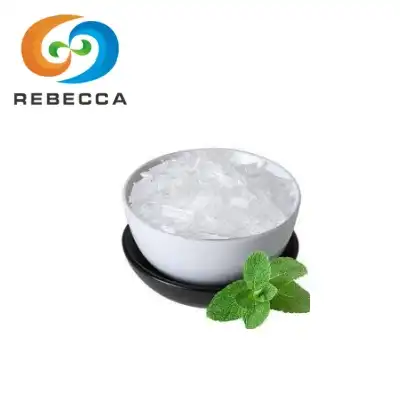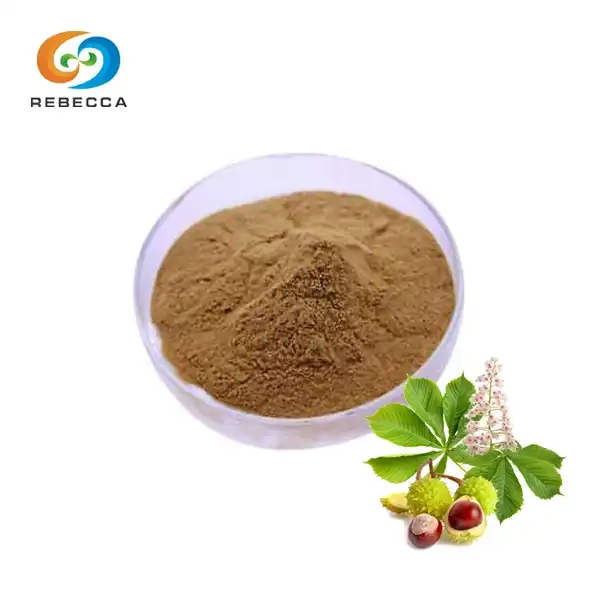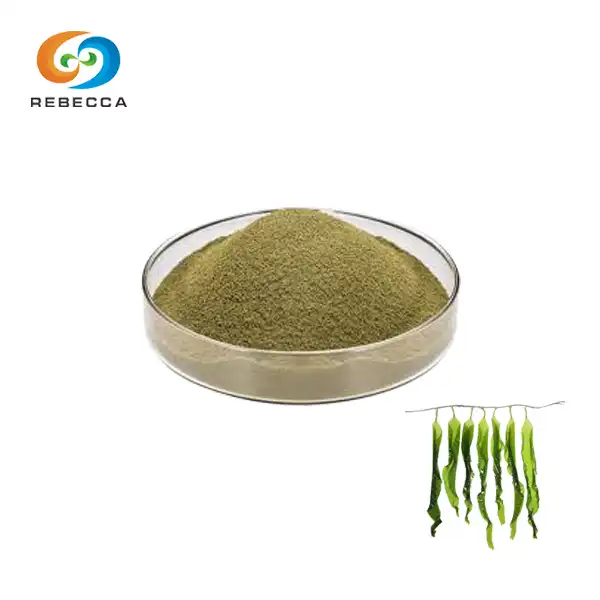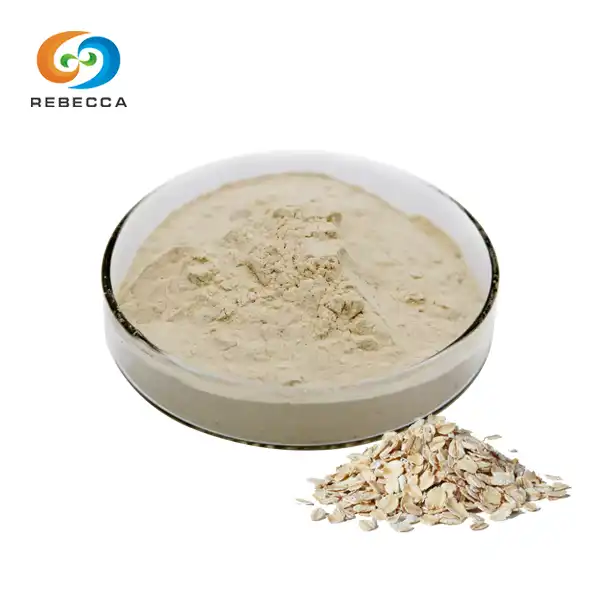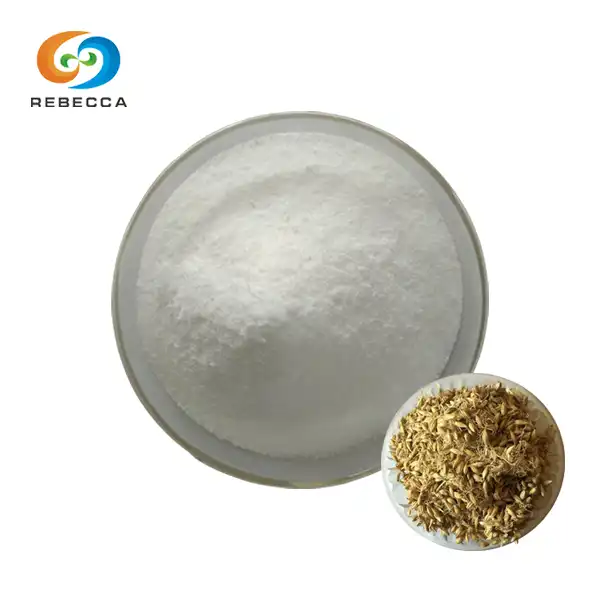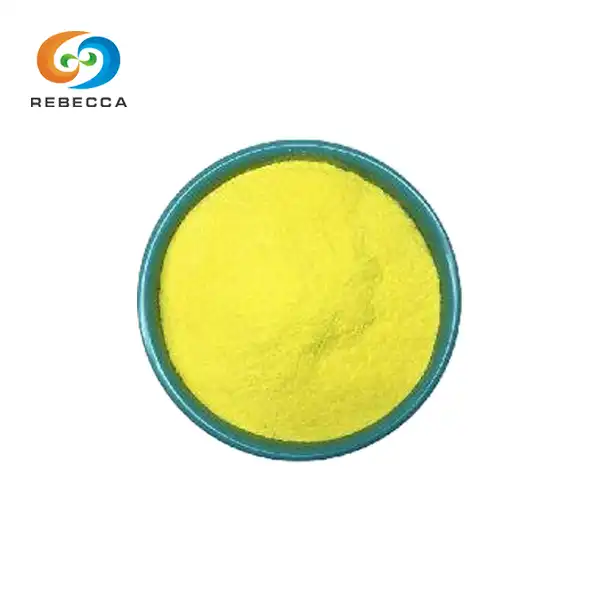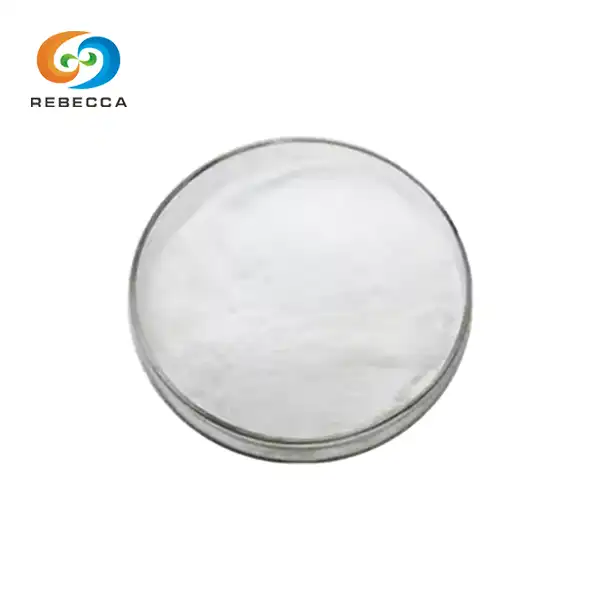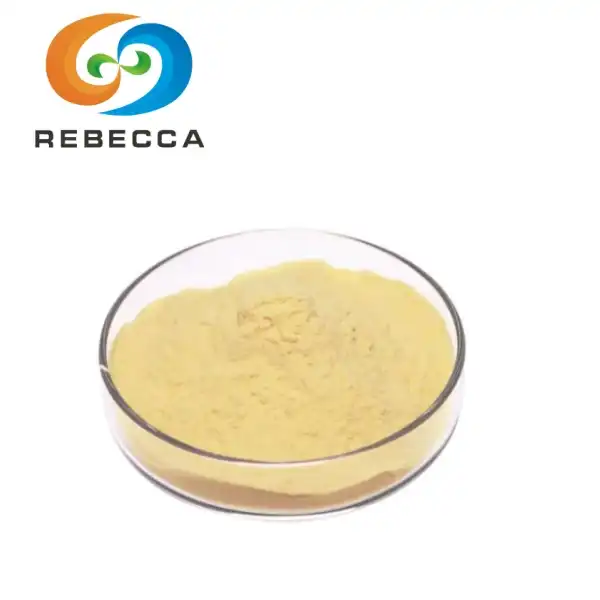Ectoine Mechanism Of Action
How Does Ectoine Work As A Moisturizer?
ectoine, a naturally occurring molecule found in extremophilic microorganisms, has gained significant attention in the skincare industry for its remarkable moisturizing properties. This small, cyclic amino acid derivative plays a crucial role in helping these organisms survive in harsh environments, and its benefits have been harnessed for skin hydration.
The moisturizing action of ectoine is primarily based on its ability to attract and retain water molecules. At a molecular level, ectoine forms a hydration shell around itself, effectively trapping water. When applied to the skin, this property allows ectoine to draw moisture from the environment and hold it close to the skin's surface, creating a reservoir of hydration.
Its water-binding capability is particularly effective in improving the hydration of the stratum corneum, the outermost layer of the skin. By increasing the water content in this layer, it helps to alleviate dryness and roughness, resulting in smoother, more supple skin. The enhanced hydration also contributes to the skin's overall health and appearance, as well-hydrated skin tends to look plumper and more radiant.
Its moisturizing effect is not just superficial. Research has shown that it can penetrate the upper layers of the skin, where it continues to attract and retain water molecules. This deep hydration is crucial for maintaining skin elasticity and reducing the appearance of fine lines and wrinkles that are often exacerbated by dehydration.
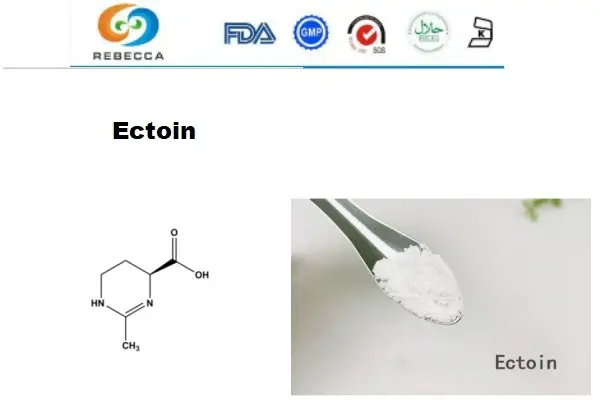
Moreover, ectoine's moisturizing action is long-lasting. Unlike some traditional humectants that provide only temporary relief, it has been shown to offer sustained hydration. This prolonged effect is due to its stability in the skin environment and its resistance to rapid degradation or evaporation.
Clinical studies have supported its efficacy as a moisturizer. For instance, a study published in the journal Skin Pharmacology and Physiology found that topical application of ectoine significantly increased skin hydration and reduced transepidermal water loss (TEWL) in subjects with dry skin. These effects were observed after just a few weeks of regular use, demonstrating its potent moisturizing capabilities.
How Does Ectoine Work As An Anti-Inflammatory?
Beyond its moisturizing properties, ectoine has also demonstrated significant anti-inflammatory effects on the skin. This dual action makes ectoine a valuable ingredient in skincare, particularly for those with sensitive or irritation-prone skin. The anti-inflammatory mechanism of it is multifaceted, involving several cellular and molecular processes.
One of the primary ways ectoin powder exerts its anti-inflammatory effect is by reducing the release of inflammatory mediators. These mediators, which include cytokines and chemokines, play a crucial role in initiating and perpetuating inflammatory responses in the skin. Studies have shown that ectoine can suppress the production of pro-inflammatory cytokines such as interleukin-6 (IL-6) and tumor necrosis factor-alpha (TNF-α) in skin cells exposed to various stressors.
Ectoine also helps inhibit inflammatory responses by stabilizing cell membranes. This stabilization prevents the activation of cellular stress responses that can lead to inflammation. By maintaining membrane integrity, it helps skin cells better withstand environmental stressors that might otherwise trigger inflammatory cascades.

Furthermore, it has been found to modulate the activity of certain immune cells in the skin. For instance, it can reduce the activation of mast cells, which are key players in allergic and inflammatory skin reactions. This effect contributes to ectoine's ability to help relieve redness and irritation associated with various skin conditions.
The anti-inflammatory properties of ectoine make it particularly suitable for sensitive skin types. Unlike some harsh anti-inflammatory agents, it works gently without causing further irritation. This makes it an excellent choice for individuals with reactive skin or those prone to inflammatory skin conditions such as rosacea or eczema.
Clinical studies have supported the anti-inflammatory effects of ectoine in various skin applications. For example, a study published in the Journal of Cosmetic Dermatology demonstrated that ectoine-containing creams significantly reduced skin redness and improved skin barrier function in patients with mild atopic dermatitis. Another study in the International Journal of Cosmetic Science showed that ectoine could effectively reduce UV-induced skin inflammation.
What Protective Effect Does Ectoine Have On Cells?
Ectoine's protective effects on cells are one of its most remarkable properties, extending beyond its moisturizing and anti-inflammatory actions. This cyclic amino acid derivative has demonstrated an ability to shield cells from various environmental stressors, including heat, dryness, and high salt concentrations. Understanding these protective mechanisms provides insight into why product is increasingly valued in skincare and other biotechnological applications.
At the cellular level, it acts as a compatible solute. This means it can accumulate in high concentrations within cells without interfering with normal cellular processes. When cells are exposed to stress, it helps maintain cellular water balance, preventing dehydration and the associated damage to cellular structures.
One of the most significant protective effects of ectoine is its ability to stabilize cell membranes. The cell membrane is crucial for maintaining cellular integrity and function. Under stress conditions, such as exposure to UV radiation or extreme temperatures, cell membranes can become unstable, leading to cellular dysfunction or death. Ectoine interacts with the lipid bilayer of cell membranes, enhancing their stability and fluidity. This interaction helps cells maintain their shape and function even under adverse conditions.

Ectoine also plays a vital role in preventing protein denaturation. Proteins are essential for nearly all cellular functions, and their proper folding is crucial for their activity. Environmental stressors can cause proteins to unfold or misfold, leading to loss of function and potential cellular damage. It has been shown to stabilize protein structures, helping them maintain their native conformation even under stress conditions. This protective effect is particularly important in skin cells, where protein integrity is crucial for maintaining skin barrier function and overall skin health.
Moreover, ectoine has demonstrated protective effects against oxidative stress. It acts as an indirect antioxidant by stabilizing cellular structures and enhancing the cell's natural antioxidant defenses. This protection against oxidative damage is particularly relevant in skin cells, which are frequently exposed to environmental factors that can generate harmful free radicals.
The cellular protective effects of ectoine have been demonstrated in various scientific studies. For instance, research published in the journal PLOS ONE showed that ectoine could protect human keratinocytes (the primary type of cell found in the epidermis) from UV-induced damage. Another study in the Journal of Biotechnology found that ectoine enhanced the survival of various cell types under conditions of extreme dryness.
Rebecca Ectoine
Rebecca Ectoine represents a significant advancement in the production and application of this valuable compound. Developed through Rebecca's innovative fermentation technology, this high-purity ectoine product showcases the intersection of biotechnology and skincare innovation.
Rebecca's fermentation technology for ectoine production likely involves carefully optimized processes that ensure high yield and purity. The company's ability to produce ectoine with 99% purity is particularly noteworthy, as it indicates a refined production process that minimizes impurities and ensures consistent quality. This high level of purity is crucial for skincare applications, where product safety and efficacy are paramount.
The direct factory supply model employed by Rebecca for their ectoine product offers several advantages. It allows for greater quality control throughout the production and distribution process, ensuring that the high purity and efficacy of the product are maintained from manufacture to end-use. This direct supply chain also potentially reduces costs and improves accessibility for skincare manufacturers and formulators looking to incorporate high-quality ectoine into their products.

For skincare professionals, formulators, and researchers interested in incorporating high-quality ectoine into their products or studies, provides a direct point of contact us at information@sxrebecca.com. This accessibility to information and potential for collaboration could be valuable for advancing ectoine-based skincare innovations and research.
References
1. Bünger, J., & Driller, H. (2004). Ectoine: an effective natural substance to prevent UVA-induced premature photoaging. Skin Pharmacology and Physiology, 17(5), 232-237.
2. Graf, R., Anzali, S., Buenger, J., Pfluecker, F., & Driller, H. (2008). The multifunctional role of ectoine as a natural cell protectant. Clinics in Dermatology, 26(4), 326-333.
3. Heinrich, U., Garbe, B., & Tronnier, H. (2007). In vivo assessment of Ectoin: a randomized, vehicle-controlled clinical trial. Skin Pharmacology and Physiology, 20(4), 211-218.
4. Kunte, H. J., Lentzen, G., & Galinski, E. A. (2014). Industrial production of the cell protectant ectoine: protection mechanisms, processes, and products. Current Biotechnology, 3(1), 10-25.
5. Marini, A., Reinelt, K., Krutmann, J., & Bilstein, A. (2014). Ectoine-containing cream in the treatment of mild to moderate atopic dermatitis: a randomised, comparator-controlled, intra-individual double-blind, multi-center trial. Skin Pharmacology and Physiology, 27(2), 57-65.
